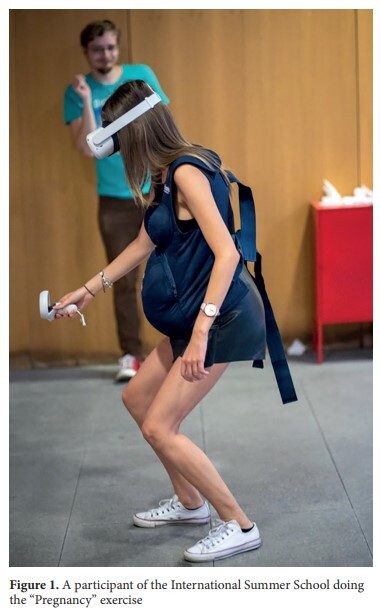Online first
Current issue
Archive
Most cited in 2024
About the Journal
Editorial Office
Editorial Board
Copyright and self-archiving policy
Information clause on the processing of personal data
Declaration of accessibility
Instructions for Authors
Instructions for Reviewers
Contact
Reviewers
2024
2023
2022
2020
2021
2019
2018
2017
2016
2015
2014
2013
Editing and translations
ORIGINAL PAPER
Increasing awareness and empathy among university students through immersive exercises – testing of the virtual reality application: A pilot study
1
University of Aveiro, Aveiro, Portugal (DigiMedia – Digital Media and Interaction Research Centre)
2
Lodz University of Technology, Łódź, Poland (Institute of Mechatronics and Information Systems)
3
University of Lodz, Łódź, Poland (Department of Applied Sociology and Social Work)
Online publication date: 2023-08-21
Corresponding author
Rui Raposo
University of Aveiro, DigiMedia – Digital Media and Interaction Research Centre, University of Aveiro Campus de Santiago, 3810-193, Aveiro, Portugal
University of Aveiro, DigiMedia – Digital Media and Interaction Research Centre, University of Aveiro Campus de Santiago, 3810-193, Aveiro, Portugal
Med Pr Work Health Saf. 2023;74(3):187-97
KEYWORDS
TOPICS
ABSTRACT
Background: This paper presents an overview of a pilot study focused on testing the effectiveness of immersive virtual reality (VR) exercises, within extended reality experiences, in increasing awareness and empathy among university students towards pregnant women, elderly people, people in wheelchairs, and people with some sort of sight impairment. The extended reality experience was designed to simulate various scenarios that reflect the experiences of people from diverse backgrounds, to promote a better understanding of different perspectives and social issues related to some of the challenges tackled by people whose limitations are many times overlooked. Material and Methods: A design-based research methodology was applied and qualitative and quantitative data were collected in samples of 20 students from 3 countries. Results: Overall, the results suggest that immersive VR applications can be an effective tool in increasing awareness and empathy among higher education students. The use of VR technology can create a sense of presence and immersion that allows students to experience situations that they may not have encountered otherwise. The results attained with the immersive experiences have provided evidence that these solutions can foster a greater understanding of different perspectives and promote empathy towards individuals from diverse backgrounds. Conclusions: Ongoing research correlated with the Mixed Reality on Universal Design’s Secret Service (Mr. UD) project results is already expanding on these findings by testing the effectiveness of VR applications in different contexts and with larger and more diverse samples. Additionally, the research conducted has provided relevant evidence that suggests that VR applications and their inclusion in training programs may help promote behavior change and reduce prejudice and discrimination towards marginalized groups. Med Pr. 2023;74(3):187–97
Share
RELATED ARTICLE
We process personal data collected when visiting the website. The function of obtaining information about users and their behavior is carried out by voluntarily entered information in forms and saving cookies in end devices. Data, including cookies, are used to provide services, improve the user experience and to analyze the traffic in accordance with the Privacy policy. Data are also collected and processed by Google Analytics tool (more).
You can change cookies settings in your browser. Restricted use of cookies in the browser configuration may affect some functionalities of the website.
You can change cookies settings in your browser. Restricted use of cookies in the browser configuration may affect some functionalities of the website.






